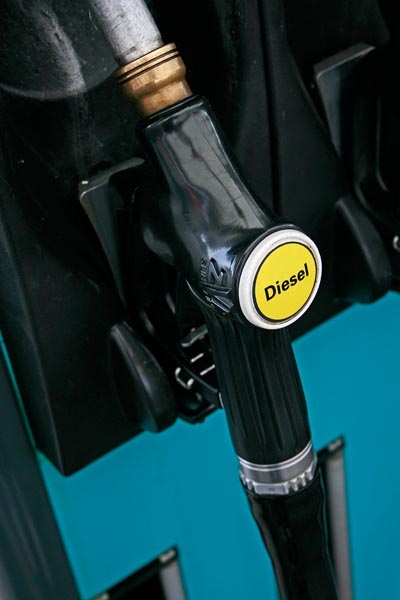
Diesel is one of the fuels that can be refined from crude oil. Some other refined fuels include gasoline, kerosene and heating oil. Diesel fuel is considered a mid-weight petroleum product. Gasoline and kerosene are examples of light petroleum products. Lubricants and bunker oil are examples of heavy petroleum products. Recent engineering changes allow for the burning of more highly refined diesel fuels that pollute less.
Rudolf Christian Karl Diesel invented the diesel engine in 1892. The original engine was designed to run on coal dust. Because the petroleum industry was still in its infancy, Diesel experimented with engine modifications that allowed it to use vegetable oil as a fuel.
As the petroleum industry grew, a lower grade fuel similar to fuel oil was developed. Commercial use of petroleum-based diesel fuels began with the development of a diesel injection pump in 1922. Road tests began with a Bosch pump in 1924. Commercial production of the pumps began in 1927, the same year that the first experimental diesel-powered car was introduced.
The development of early petroleum diesel fuels and of experimental vehicles burning diesel fuel was a synergistic process. The possibility of sales of the fuel triggered more refining, and more refining encouraged further development. Early diesel fuels had a high sulfur content and resulted in higher pollution levels. Because diesel engines don't have lubricating oil, engine lubrication comes from the fuel itself. Higher sulfur levels gave the fuel more lubricating ability.
In 1936, Mercedes introduced the first production automobile with the Mercedes-Benz 260D. Interest in diesel-powered cars grew after World War II. The higher efficiency of the engines resulted in many taxi companies adopting the diesel engine to save costs. The increased demand for diesel fuel caused a shortage of the fuel in the late 1940s and early 1950s. Although diesel-fueled cars were in common use, the Volkswagen introduced the first compact car with a diesel engine in 1975. The diesel Jetta was produced in response to the oil crisis in the 1970s and was the most fuel-efficient car in production at the time. Improvements in diesel engines for passenger cars have continued, resulting in the popularity of diesel-powered cars in Europe.
Modern diesel fuels have less sulfur. Lower sulfur levels result in fewer sulfur emissions at the tailpipe. Most nations now ban high- and mid-sulfur diesel fuels, or limit their use to off-road and industrial use. In 2006, the U.S. Environmental Protection Agency mandated the use of ultra-low sulfur diesel fuel. When this fuel is combined with modern emission control systems, the result is an automobile that has tailpipe emissions as low as, and sometimes lower than, traditional gasoline-powered cars.
With the word's oil supply shrinking, interest rebounded in Rudolph Diesel's original engines that burned vegetable oil. By making minor engine modifications, most modern diesel engines can burn vegetable oil. Some owners of diesel vehicles collect used vegetable oil from places like fast-food restaurants. By filtering the used oil, it can be burned in a number of modern cars.